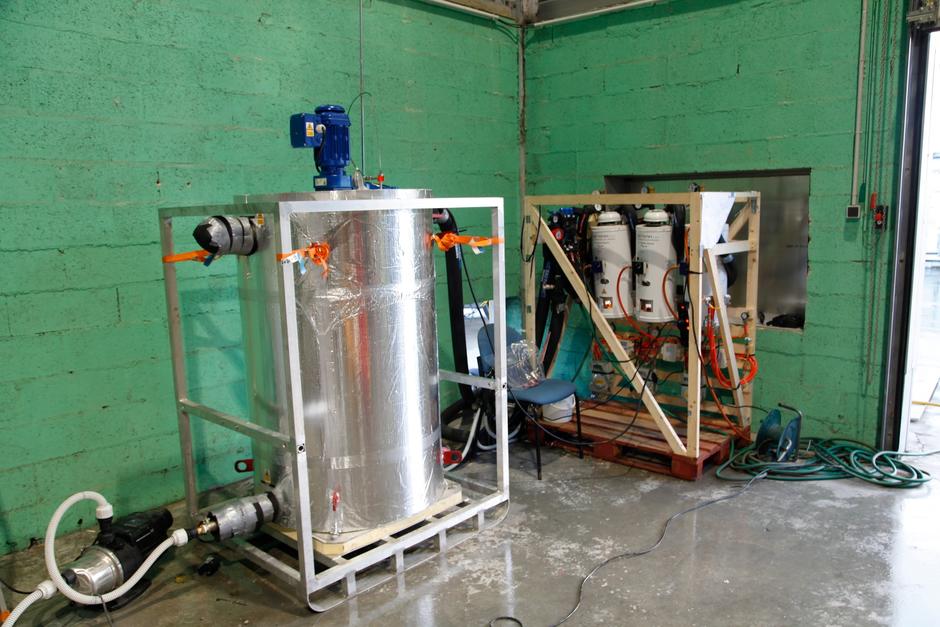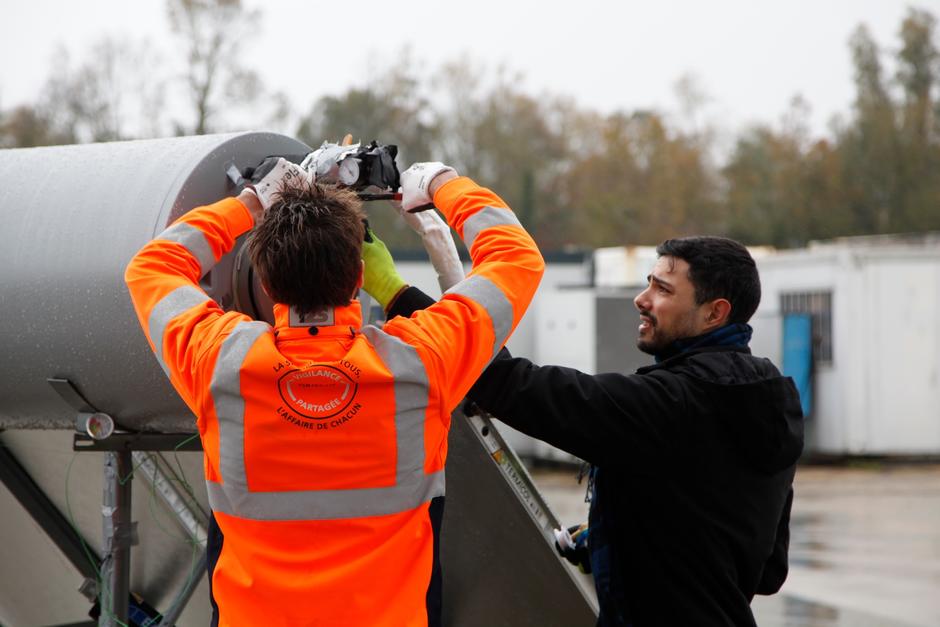In Limay, to the west of Paris, several volunteers and permanent staff from the Veolia foundation took turns testing a wastewater solution for the humanitarian sector. Hosted for several weeks by Veolia's Research teams, these Veoliaforce experts took advantage of these simulations to overcome several technical pitfalls.

At the end of September, the port area of Limay, in the Yvelines department, saw some brand new equipment in transit. Veolia's DEST* research centre hosted a series of tests designed to perfect a new wastewater treatment solution developed by the Veolia Foundation.
Called "Saniforce", this system uses hygienisation to treat faecal sludge through a methanisation process followed by pasteurisation** using the biogas produced during the previous stage. This solution, which provides sanitary treatment of the contents of septic tanks and latrine pits for 500 people, is designed for the humanitarian sector, particularly in contexts where there is an epidemiological risk. It is intended to be placed in the hands of NGOs for its reliability, adaptability and ease of deployment by local teams.

In Limay, a collective effort was made to test and validate the prototype developed by Veoliaforce experts. Volunteers from the group's various business lines worked together to deploy the station in the secure environment of a DEST research centre, and then to implement the test protocols. The operations focused on validating the Saniforce thermal model.
What's next? The results of the various tests will have to be consolidated to provide input for new scenarios. Trials in Uganda are planned, and the model deployed in Kisumu, Kenya, will continue to provide lessons learned. A new pilot will be deployed in 2024.
* Veolia's Department of Technical and Scientific Expertise (DEST).
** This consists of keeping the digestate at 70° for one hour.


